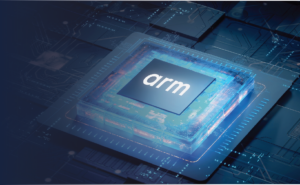Last week, many major tech media outlets like ZDNet, Ars Technica, AnandTech and others covered news of Intel’s announcement that it would phase out support for legacy BIOS on 64-bit platforms by 2020.
As a key partner with Intel in both legacy BIOS and UEFI for many years, we offer up our thoughts and observations here, along with a brief discussion of what the potential impact is – both for AMI and for end users of computer systems that still retain legacy BIOS support.
Why did Intel make this announcement?
While there are any number of reasons behind this announcement, which many saw as a long time coming, we can focus in on two of the biggest: security and ease of development.
For years there was a “Compatibility Support Mode”, or CSM, that enabled a newer, UEFI-enabled system to operate in legacy BIOS mode. One of the problems of CSM, however, was that many of the features that UEFI offered had no equivalent function or support in legacy BIOS, so CSM became gradually more limited in what it could do.
With respect to security, leaving CSM in UEFI firmware exposed certain security holes where malicious code could potentially gain low-level access to a computer system. Therefore, removing it will lead to more secure computing platforms – which was one of the key driving factors behind the creation of UEFI in the first place.
Additionally, saying goodbye to CSM and legacy BIOS on new 64-bit processors will speed development time, since compatibility with CSM will no longer have to be added and tested during the development process.
What does it mean for AMI?
Short answer: Not much.
AMI made the transition from legacy BIOS to UEFI years ago, with the release of the first generation of our Aptio® UEFI BIOS Firmware in the early 2000s.
No doubt there are some legacy AMIBIOS products, particularly embedded systems, that are still in use in the wild as AMI had a strong market share for BIOS since 1985. But development efforts were transitioned to our Aptio UEFI BIOS years ago, and AMI has not actively supported AMIBIOS development since the introduction of our UEFI firmware.
What does it mean for end-users?
Again, essentially the same short answer: Not much… with a caution about what a small group of users might miss.
According to Ars Technica, “The ability to boot DOS and other legacy relics is going to disappear.” In truth, how many readers are still using DOS today – besides for fun and/or nostalgic reasons?
On a serious note, most likely the biggest impact of losing legacy BIOS support will be the inability to run 16-bit operating systems and related software, or any hardware that depends on legacy BIOS such as older network or graphics cards.
While software can run un a virtualization mode and still function effectively, these outdated systems and components will have to be retired as 64-bit operating systems and UEFI (without CSM) will no longer recognize them.
And on more a positive note, computers that enable legacy BIOS are going to become even more secure once BIOS is removed completely and only UEFI is supported. Generally speaking, the most advanced security features of UEFI like Secure Boot only function when CSM is disabled, so removing it completely from UEFI will ensure that Secure Boot use is more widely employed.
Obviously, what we have presented here is a very brief and high-level analysis of a complex topic; if you would like to dig deeper and understand the full scope of this announcement, we recommend that you refer to any of the articles linked above at the beginning of this blog post.
Thanks for reading today’s Tech Blog! Do you have any thoughts on the imminent end of legacy BIOS support by Intel, and how it will impact computer users? Feel free to drop us a line via social media or our Contact Us form and let us know – and what you might like to see in future posts!






